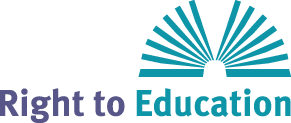The report focuses on the legal obligations of states and private entities to mobilise all resources at their disposal, including those that could be collected through taxation or prevention of illicit financial flows, to satisfy minimum essential levels of human rights and finds that states who facilitate or actively promote tax abuses, at the domestic or cross-border level, may be in violation of international human rights law.
The report is based on a detailed examination of UN treaty bodies and special procedures’ views on the current interpretation of the scope and content of this obligation to mobilise resources. Further, it is published against the backdrop of increased awareness of the relationship between economic policies and human rights and the 2030 Agenda for Sustainable Development which committed all UN member states to ‘strengthen domestic resource mobilization, including through international support to developing countries, to improve domestic capacity for tax and other revenue collection’ and ‘significantly reduce illicit financial flows’.
The right to education and lifelong learning is at the very heart of the 2030 Agenda for Sustainable Development because education, knowledge and learning are central to the dignity, growth and development of the individual. For centuries, education has been the great equalizer, a driving force of nation-building, and the engine of social, cultural, economic and technological progress. Today, however, beset by twin crises of equity and relevance, education as we know it is no longer fit for purpose.
Building on the Transforming Education Summit and the report of the International Commission on the Futures of Education, the present policy brief examines the current crisis in education in more detail and puts forward a vision and a set of guiding actions for countries and the international community to transform education. It concludes with two overarching recommendations for the consideration of Member States in their preparations for the Summit of the Future.
Ce document de recherche et d’orientation étudie certains aspects du droit à l'éducation qui pourraient nécessiter un ancrage plus solide dans le cadre normatif international et une expansion potentielle pour le 21st siècle. L'éducation numérique, la mobilité croissante des personnes, l'évolution démographique, le changement climatique et les attentes en matière de possibilités d'apprentissage tout au long de la vie ne sont que quelques-uns des domaines qui mettent à l'épreuve les limites du cadre normatif international existant. Aboutissement d'un cycle de consultations ouvertes, de séminaires et d'événements internationaux, ainsi que de recherches, ce document présente quelques-unes des tendances émergentes, des défis et des normes qui ont été discutés.
This policy-oriented research paper investigates some of the aspects of the right to education that might require a stronger footing in the international normative framework and potential expansion for the 21st century. Digital education, increasing human mobility, changing demographics, climate change, and expectations of opportunities for learning throughout life are just a few of the areas that are testing the limits of the existing international normative framework. The culmination of a round of open consultation processes, as well as international seminars and events, and research, this paper presents some of the emerging trends, challenges, and norms that have been discussed.
